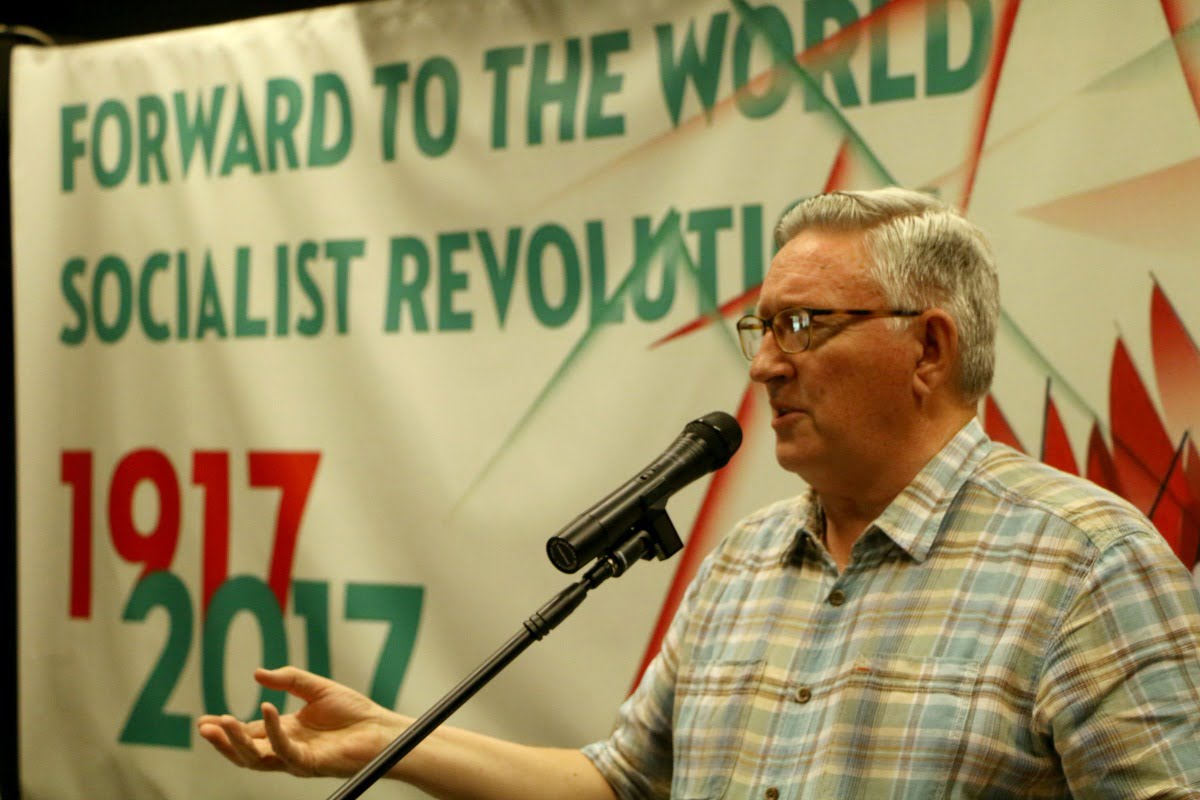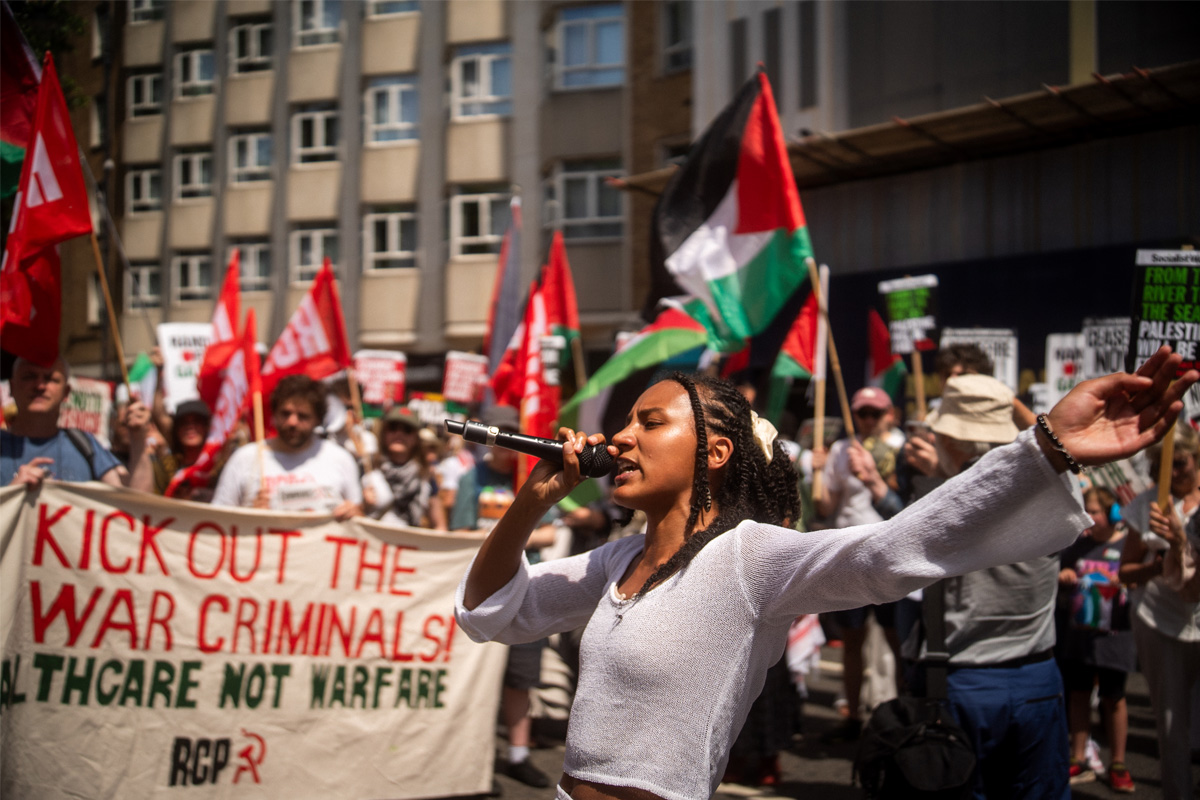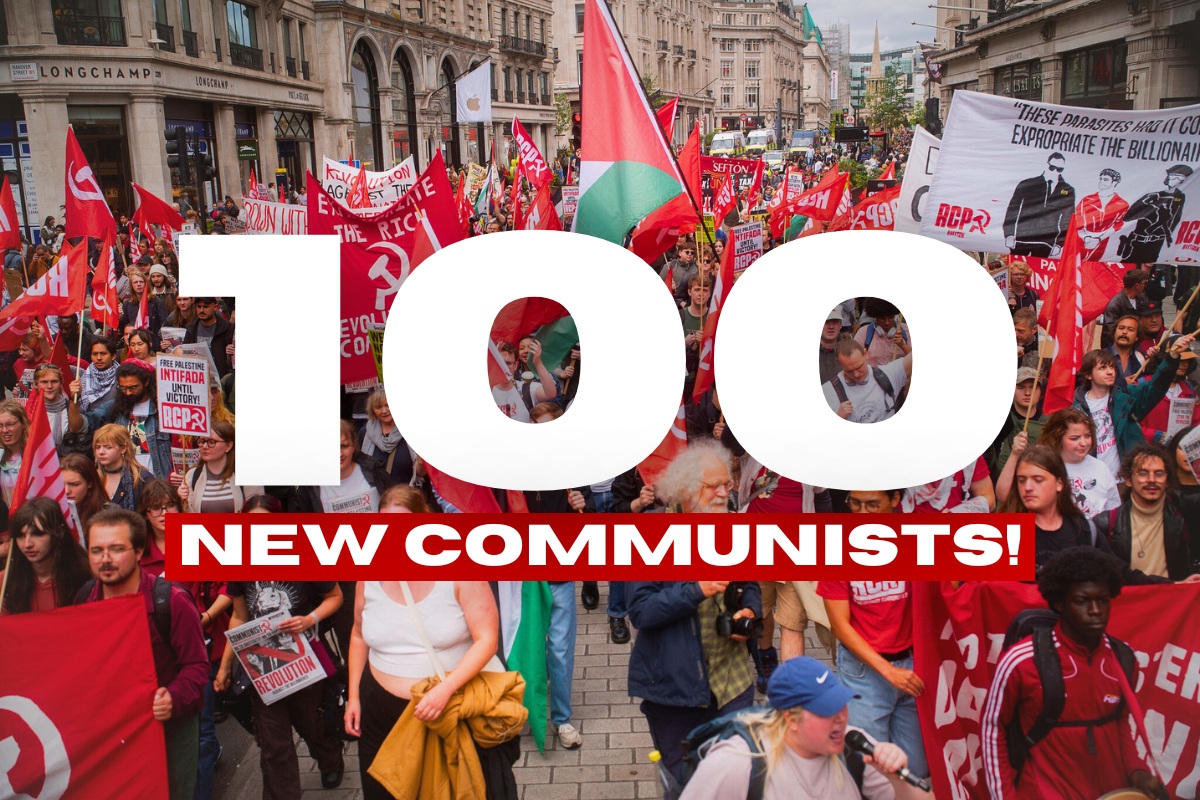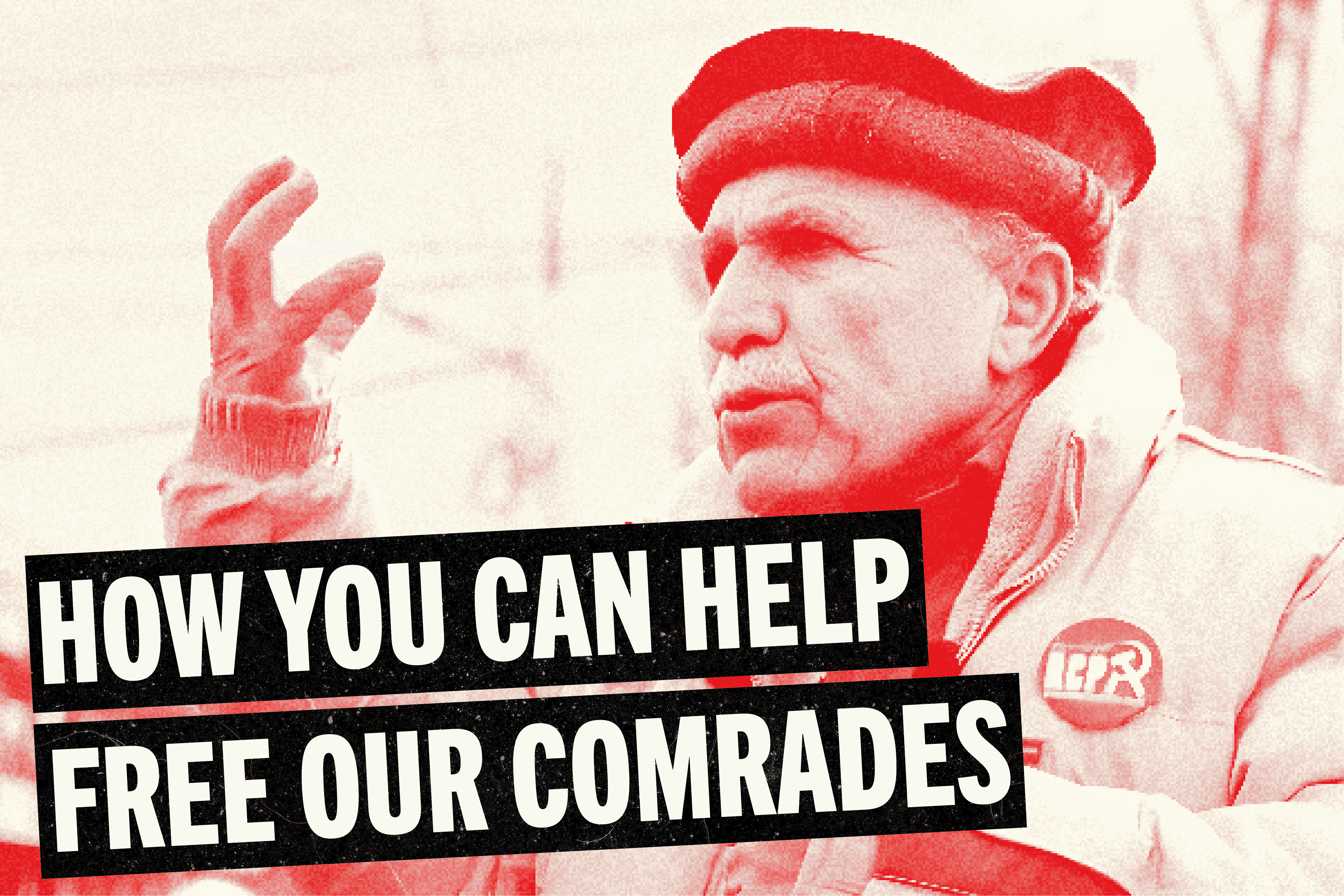Over 300 revolutionaries from 20 different countries flocked to Italy in the last week of July for the International Marxist Tendency 2017 World School. The event celebrated the centenary of the Russian Revolution, with political discussions themed around this momentous chapter in human history.
Over 300 revolutionaries from 20 different countries flocked to Italy in the last week of July for the International Marxist Tendency 2017 World School. The event celebrated the centenary of the Russian Revolution, with political discussions themed around this momentous chapter in human history.
Aside from educational sessions about the prelude to the revolution, the building of the Bolshevik Party, the workers’ conquest of power, the Civil War and the early Soviet regime, comrades from across the international shared experiences of revolutionary work in their respective nations and discussed plans for building the tendency worldwide.
By all accounts, the school was an enormous success that thoroughly inspired the (mostly young) attendees to honour the legacy of the Bolshevik Party by building socialism in the 21st Century.
World perspectives: for the bourgeoisie, all roads lead to ruin
After comrades had settled in, greeted old friends and introduced themselves to newcomers, the school officially began with a discussion on world perspectives, led by the editor of In Defence of Marxism, Alan Woods.
Alan noted that all moves taken by the bourgeois politicians and economists to restore economic equilibrium have destroyed the political and social equilibrium ‒ be it austerity or financial bailouts for the banking sector; by seeking to avert the current crisis, they merely invest in future crises.
As Marxists we understand that consciousness lags behind material developments ‒ but it is catching up with a bang. Alan cited a recent poll in which 67% of Americans said they would vote for a socialist, including 34% over the age of 65. This from the country of ‘Reds Under the Bed’!
He explained that the decisive shift in capitalist society is perhaps clearest of all in Britain, where the ruling class was hit with three concurrent shockwaves in the form of the Scottish independence referendum, the EU referendum and the 2017 general election ‒ in which the Conservatives narrowly held onto a parliamentary majority, and made Jeremy Corbyn a ‘Prime Minister in waiting’.
However, Alan voiced a word of caution to anyone with illusions in reformists like Corbyn, pointing to the economic and social catastrophe in Greece following Alexis Tsipras’ capitulation to the Troika’s demand for austerity measures.
The day-long discussion that followed saw contributions from across the international, elaborating on how the global crisis of capitalism has upended the status quo on every continent. Alan concluded by reflecting on these eruptions, noting that all actions of the bourgeoisie in the period of capitalism’s death agony inevitably lead to ruin.
Armed with Marxist ideas, and with the correct leadership, the working class can and must follow the example of the Russian proletariat 100 years ago, and bring about a new society.
Venezuela and the first phase of the Russian Revolution
The rest of the week was largely taken up by commissions themed around the Russian Revolution. One exception was a session on Venezuela, introduced by Jorge Martin, general secretary of the Hands off Venezuela campaign group.
Jorge explained that, after his election in 1998, Hugo Chavez’s programme was not socialist but constituted elementary national democratic demands: agrarian reform, ending political corruption, widening democracy to layers that had previously been excluded, and a more democratic use of oil profits for the good of society. Moreover, in carrying out this programme, Chavez had inspired a movement that was far more radical than him, bringing the masses raging into political life, fending off a right-wing coup in 2002.
However, Chavez failed to expropriate (and indeed sought reconciliation with) the Venezuelan capitalists and oligarchs, which has allowed them to sabotage the Bolivarian Revolution from within. This, combined with a downturn in the oil economy, has resulted in a massive degeneration of living standards and permitted a counterrevolutionary opposition (backed up by imperialist powers) to win a controlling majority in the National Assembly.
Chavez’ successor, Nicolás Maduro, has attempted to maintain power through the election of a Constituent Assembly, while simultaneously making concessions to the capitalists. The result is that the revolutionary enthusiasm of the masses is at a low ebb.
What has failed in Venezuela is not socialism, as Jorge pointed out, but reformism. The impossibility of carrying out half a revolution has pushed the Bolivarian Revolution to the brink of collapse. Only through the direct participation and revolutionary initiative of the masses to break the hold of the capitalists can the revolution hope to survive.
In the parallel commission, comrade Jerôme Metellus from France introduced a discussion on the February Revolution. He explained how a mass strike, initiated by female textile workers in a Petrograd factory on 23 February (in the old calendar) developed into a victorious insurrection.
Confounding the assessments of bourgeois historians, when the revolutionary workers and defecting imperial soldiers converged on Tauride Palace on 27 February, they did not seek to hand power over to the Duma, but to the Petrograd Soviet.
Herein lies what Trotsky calls the paradox of February: the workers and peasants in uniform had carried out a revolution against the wishes of the Russian bourgeoisie, who feared their strength. Moreover, the reformist leaders of the Soviet (Miliukov, Rodzianko, Pushkov and so forth) were eager to confer power to the bourgeoisie, as they lacked faith in the masses to govern themselves. Therefore, Russia entered a phase of dual power: being jointly ruled by the Provisional Government and the Soviets.
The afternoon saw Alan lead a plenary discussion on the history of the Bolshevik Party, unique in the rapidity of its development from a small force into a mighty mass organisation that led millions of Russian workers and peasants in the seizure of power. Under the guidance of Lenin, the party was distinguished by making Marxist theory the basis of its work, as it is the basis of ours.
Alan provided a whistle-stop tour of the Bolsheviks’ development: starting with small Marxist discussion groups led by Plekhanov; to Lenin’s professionalisation of the Russian Social Democratic Labour Party at its second congress in 1903 (precipitating the Bolsheviks’ split from the reformist Mensheviks); to the 1915 conference in Zimmerwald where Lenin broke with the Second International over its support for the Great War; and ending with the outbreak of revolution in Russia in 1917.
At the time, the Bolsheviks had 8,000 members in a country of 150 million, and were a small minority in the Soviets, demonstrating how a small organisation ‒ on the correct theoretical footing ‒ can soon become a mass force. In his summing remarks, Alan stated that our organisation stands firmly on the basis of the incredible heritage of Bolshevism.
Powered by flickr embed.
How the workers took power
Hamid Alizadeh took over on Thursday morning, describing the ‘July Days’: a pivotal moment at which events teetered between revolution and reaction. Only the political clarity of Lenin and the Bolsheviks repulsed a ferocious fascist dictatorship in the form of General Kornilov’s coup against the Provisional Government.
Hamid compared these events to the aftermath of the Egyptian Revolution, in which there were many such ‘July Days’ ‒ such as when the youth came out against the military, and when 17 million protesters toppled Morsi. But without an equivalent of the Bolshevik Party (the essential subjective factor) the revolution has fallen back into retreat.
Francesco Merli covered Lenin’s seminal State and Revolution in the parallel session, explaining its importance to understanding the bourgeois state. Using Lenin’s analysis, Francesco demonstrated that abstract qualities attached to the state apparatus ‒ such as justice and liberty ‒ are nothing more than an ideological cover for an armed body of men, designed to defend and preserve capitalist property relations.
The second part of the day saw sessions on the October Revolution and the Bolsheviks’ attitude to the First World War. The former (led by Claudio Belotti from Italy), provided an overview of the single greatest moment in human history, surpassing even the Great French Revolution of 1789. Amidst struggles within his own party and facing reformism in the Soviets, Lenin patiently outlined the concrete task of insurrection against the Provisional Government. Only the masses could accomplish this, as Lenin himself said: “The fate of the Russian and world revolution depends on two to three days of open struggle.”
Despite further attempts to delay or outright sabotage the insurrection by certain members of the Bolshevik Party (including Kamenev and Zinoviev), the Red Guards (workers’ militias) and sympathetic soldiers eventually carried out a well-coordinated (and mostly bloodless) seizure of power in Petrograd on October 25, culminating in a siege on the Winter Palace the following day.
In direct rebuttal to accusations of the bourgeois liberals, October was not a coup by violent conspirators but a popular uprising by thousands of workers and peasants won gradually to revolutionary ideas by Lenin’s patient work.
Niklas Svensson led a discussion on Lenin’s 1916 work, Socialism and War, in which he evoked Clausewitz’s description of war as merely the ‘continuation of politics by other means’, and thus not a moral but a scientific question. The first step for a Marxist is to identify the character of a war: is it a conflict between classes? For national liberation? A war of conquest? This concrete character determines our position.
Niklas explained how the Second International correctly analysed the First World War as imperialist (arising from the need to re-divide the world as unified Germany sought control of new markets), but only a small minority of the international, led by Lenin, ultimately opposed national war efforts.
Implicit in Lenin’s slogan of revolutionary defeatism was the view that the real enemy was not abroad but the capitalists at home. This analysis also informed Trotsky’s position in the Second World War, calling for the workers to overthrow their Allied governments and wage a revolutionary struggle against fascism, while appealing to the German workers in the process.
No liberation without socialism!
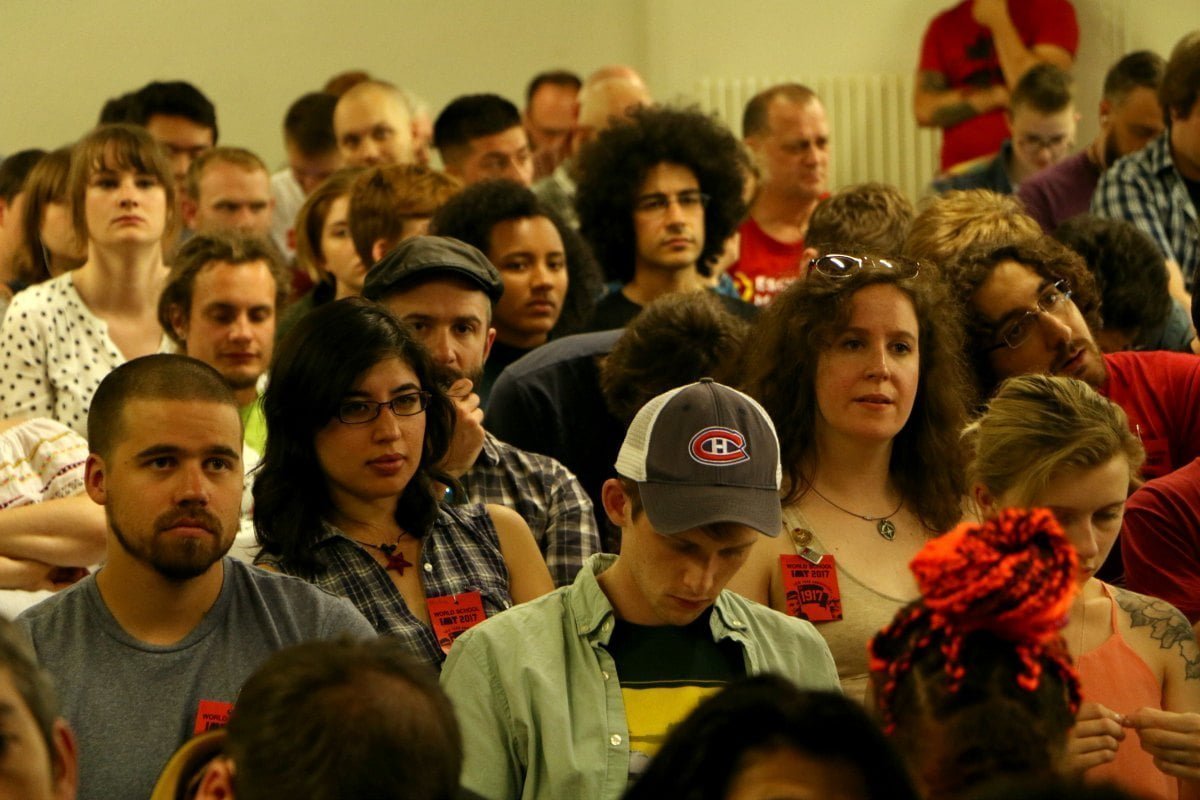 Thursday was given over to discussions on women’s liberation and the national question. The former, led by Marie Frederiksen from the Danish Marxists, described the progressive impact of the Russian Revolution for women.
Thursday was given over to discussions on women’s liberation and the national question. The former, led by Marie Frederiksen from the Danish Marxists, described the progressive impact of the Russian Revolution for women.
The particularly high level of oppression and subjugation faced by women in Russia (when domestic abuse was legally protected) quickly turned into its opposite when the revolution took hold. Indeed, it was women workers who led the February Revolution.
While women made up a small proportion of the Bolshevik leadership (and in terms of political representation in general at the time), the Bolsheviks introduced a raft of extremely progressive reforms for women upon taking power. These included the decriminalisation of abortion, simplification of divorce law, freedom of movement and granting women the right to own land.
Marie explained that, for Marxists, the struggle for women’s emancipation cannot be separated from a struggle for the whole working class, making socialist revolution a precondition for genuine women’s liberation. This perspective stands in stark contrast to the petty-bourgeois and bourgeois feminists who supported the First World War, and who opposed the demand of bread as ‘too material’.
Jorge led the discussion on national liberation, which was a key question for Lenin, who described the Russian Empire as a ‘jailhouse of nations’, encompassing many oppressed groups in the Baltic, Belarus, Ukraine, the Caucasus, the Kazaks and other Southern nationalities. The question of nationalities was dealt with as early as the 1903 congress, at which the RSDLP recognised the right of nations to self-determination, whilst also stressing the need for united struggle by the working class.
Lenin put this perspective into practice after the October revolution, declaring the right of all nations in the Russian Empire to self-determination. Jorge explained that – despite causing complications during the Civil War in Finland, Ukraine and elsewhere (where the question of national liberation was cynically used by the old ruling class in order to distract from the class question) – Lenin’s nuanced analysis ultimately proved correct.
The Bolshevik’s position on the national question was later undermined by Stalinism, however, who paved the road back to Greater Russian chauvinism. The bleak consequences of this can be seen today in Chechnya, where a brutally suppressed people have been transformed from some of the most ardent revolutionaries in the region (during the Russian Civil War) into a hotbed of Islamic fundamentalist reaction.
Russia under the Bolsheviks
 The latter part of the school dealt with the early Bolshevik regime, with the exception of Alex Grant from Canada, who systematically dismantled 10 common lies about the Bolshevik Party.
The latter part of the school dealt with the early Bolshevik regime, with the exception of Alex Grant from Canada, who systematically dismantled 10 common lies about the Bolshevik Party.
Any experienced Marxist will surely be familiar with such old chestnuts as: ‘the revolution was a coup’; ‘Lenin was a German spy’; and ‘there would have been democracy in Russia if not for October’. While all present had a good laugh at the absurdity of these slanders, comrades left armed with effective counter-arguments should they encounter such rubbish in the future.
On Friday morning, John Peterson from the United States dealt with the Bolsheviks’ first year in power.
After seizing Petrograd, the Bolsheviks were holding on for the German Revolution, which was tragically defeated in the defeat of the Sparticist Uprising in 1919. In the meantime, the Bolsheviks were forced to act quickly to consolidate their power and earn the respect of the masses, passing a number decrees on immediate peace with Germany, land reform, improvements to wages and working hours, secularisation of public education and a number of social reforms (including the decriminalisation of homosexuality).
The response from the bourgeoisie came in the brutal form of the White Terror, upon which Rob Lyon from Canada elaborated in his talk on the Civil War.
In stark contrast to the lies thrown at Trotsky and the Red Army by bourgeois historians, the workers’ ‘Red Terror’ was nothing compared to the sadism of the White armies led by the likes of Kolchack, Kornilov and Denikin. One particularly gruesome episode Rob related involved hundreds of Reds (and suspected Reds) being shot, stripped naked, their frozen bodies contorted into obscene positions, and sent to starving Petrograd in a train car labelled ‘fresh meat’.
As Rob explained: the professionalised and centralised army that Trotsky built out of untrained workers, peasants and guerrilla combatants was fighting a tooth-and-nail struggle against the embryo of Russian fascism, which enjoyed the full support of 21 invading imperialist armies.
Finally, comrade Fred Weston led a discussion on the building of the Comintern, describing how internationalism was always central to the programme and objectives of the Bolshevik Party ‒ despite the Stalinist distortions of ‘socialism in one country’.
Having declared the Second International dead after most its leadership adopted a chauvinist position on the Great War, Lenin set about building a Third International, which was eventually accomplished in 1919 with the formation of communist parties. Delegates from Russia, Germany, Austria, Poland, France, Britain, China and elsewhere assembled in Russia to ratify the manifesto of the international at its first congress.
However, cracks immediately began to appear in the organisation, as its various sections fell prey to opportunism or ultra-leftism. Of course, when Stalin assumed control of the Soviet Union, the degeneration only intensified, to the point where the various communist parties adopted shameful collaborationist, social chauvinist and other counter-revolutionary positions. This could be described as the end of the glory days begun in October, with the revolution now firmly down the road to Thermidorian reaction.
A new chapter for the IMT
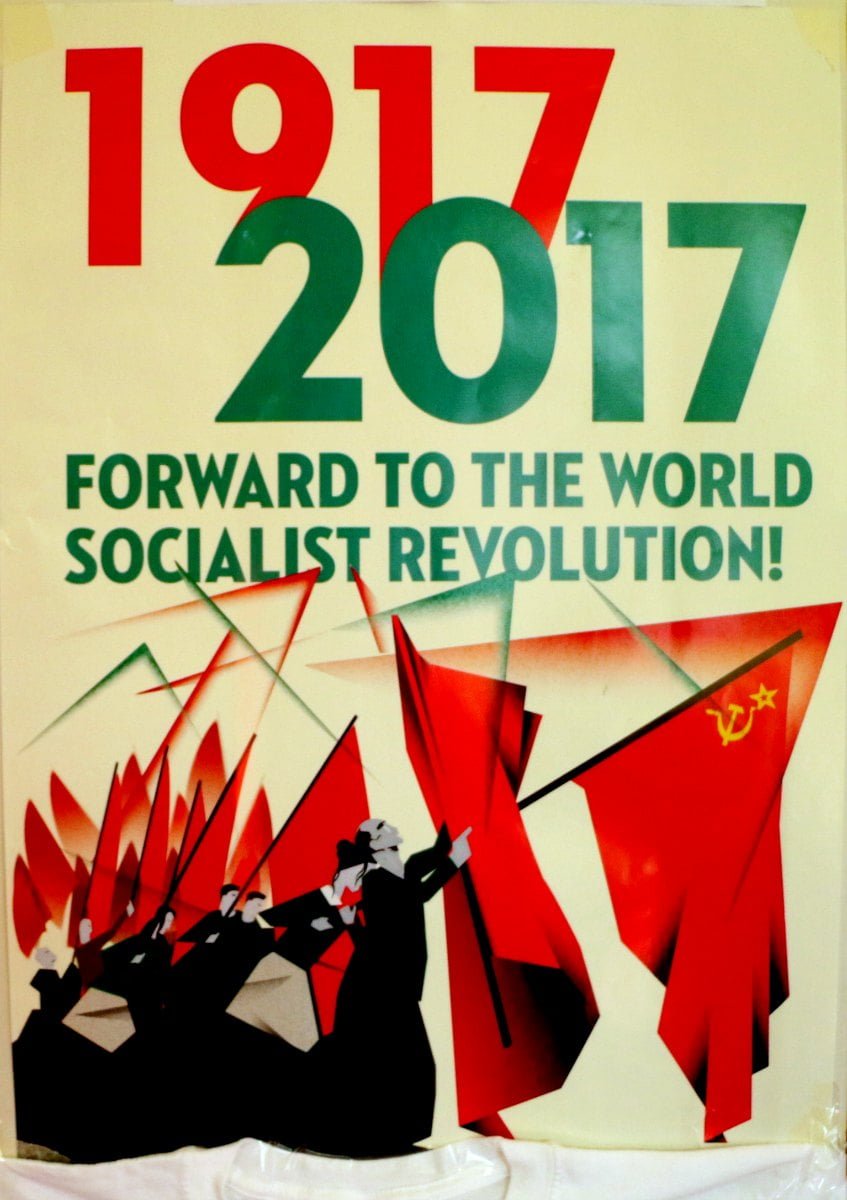 Despite these grim lessons from history, the school ended on a note of great positivity with the international report, delivered by Jorge. Comrades got a real sense of the strength of the IMT as Jorge described particular success stories in places like El Salvador and Sweden.
Despite these grim lessons from history, the school ended on a note of great positivity with the international report, delivered by Jorge. Comrades got a real sense of the strength of the IMT as Jorge described particular success stories in places like El Salvador and Sweden.
Elsewhere, we have seen a steady increase across four continents, in particular with a strengthening influence amongst radicalised youth. Given the hideous impact of the crisis of capitalism upon the living conditions and working prospects for young people, it is little wonder our unabashedly revolutionary programme is finding an echo in this milieu.
The swift growth of American Marxists, combined with comrades’ impressive financial sacrifices, has provided an office in New York and a revamped, full-colour paper: Socialist Revolution ‒ a remarkably bold title for a country once so hostile to left-wing politics. A comrade from Pittsburgh has apparently set himself a ‘lifetime goal’ of selling half-a-million subscriptions to the new paper. There’s nothing like revolutionary optimism, comrade!
Meanwhile, the hard work of the British Marxists has paid off with the launch of the fortnightly Socialist Appeal paper. The comrades in Italy have had a great deal of success campaigning amongst school students and in women’s marches, which began in Naples earlier this year.
Comrades were awed by the courage of the Pakistani comrades, who delivered a brief summary of the challenging political situation in their country, where imprisonment and even death are constant threats. In spite of the obstacles, a bold approach towards the youth through the Progressive Youth Alliance has allowed us to forge links with students and young workers outraged, amongst other things, at the murder of Mashal Khan in April.
Our comrades have been at the head of anti-government protests up and down the country, and have also begun to win support in occupied Kashmir. Comrade Adam Pal described our work as a ‘small light in the darkness’ for a Pakistani working class that is just beginning to learn its strength.
In Alan Woods’ closing remarks, he joked that he declares each successive IMT world event the best ever ‒ and it is always true! But this year, given the centenary of the Russian Revolution, the atmosphere was particularly special. The mood was encapsulated by a newly joined British comrade:
“I’ve never been to an event as educational and friendly as the IMT World School. I’ve always wanted to be active in changing things. However, the school symbolised the greatest means to do so: namely scientific Marxist analysis and a genuine Bolshevik organisation.”
The legacy of the Bolsheviks is ours to inherit. Forward to revolution, comrades!

